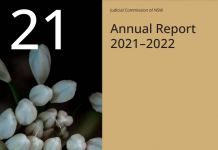Over the past decade there has been an increased awareness of the causes, characteristics and impact of domestic violence. This has led to a number of State and Commonwealth legislative and policy initiatives. The Commission has published a study Sentencing Trends & Issues No 45, “Sentencing for domestic violence”, June 2016 that comprehensively reviews the sentencing principles that apply in cases of domestic violence, examines the most common offences committed in a domestic violence context and discusses recent legislative initiatives.
The overarching sentencing principles that apply in domestic violence cases are set out in the study. The courts have recognised that the criminality of the offending is not lessened by the fact that the violence occurs in a domestic relationship. Domestic violence typically involves the assertion of power and control over the victim and significant weight is to be given to general and specific deterrence, community protection, and denunciation.
The study also collects recently published information concerning the prevalence of the problem. Domestic violence is inherently gendered with 70% of victims in NSW between April 2011 and March 2016 female and 81% of alleged offenders male. The study reports that between 2000 and 2012, 78% of domestic homicide victims were women killed by their intimate partner and 21% of victims were children under the age of 18.
The study then examines the:
- most prevalent offences committed in a domestic violence context
- special domestic violence provisions which ensure a court is alerted to an offender’s prior record for domestic violence
- aggravating and mitigating factors to be taken into account at sentence under the common law and Crimes (Sentencing Procedure) Act
- relevance of the attitude of the victim at sentence and the use of victim impact statements
- application of the totality principle, that is, where an offender is charged for multiple offences and/or where there are multiple victims and the court is required to impose a sentence reflecting the entirety of the offending behaviour
- statutory prohibitions which prevent a court from imposing home detention and intensive correction orders in stipulated circumstances of domestic violence.










